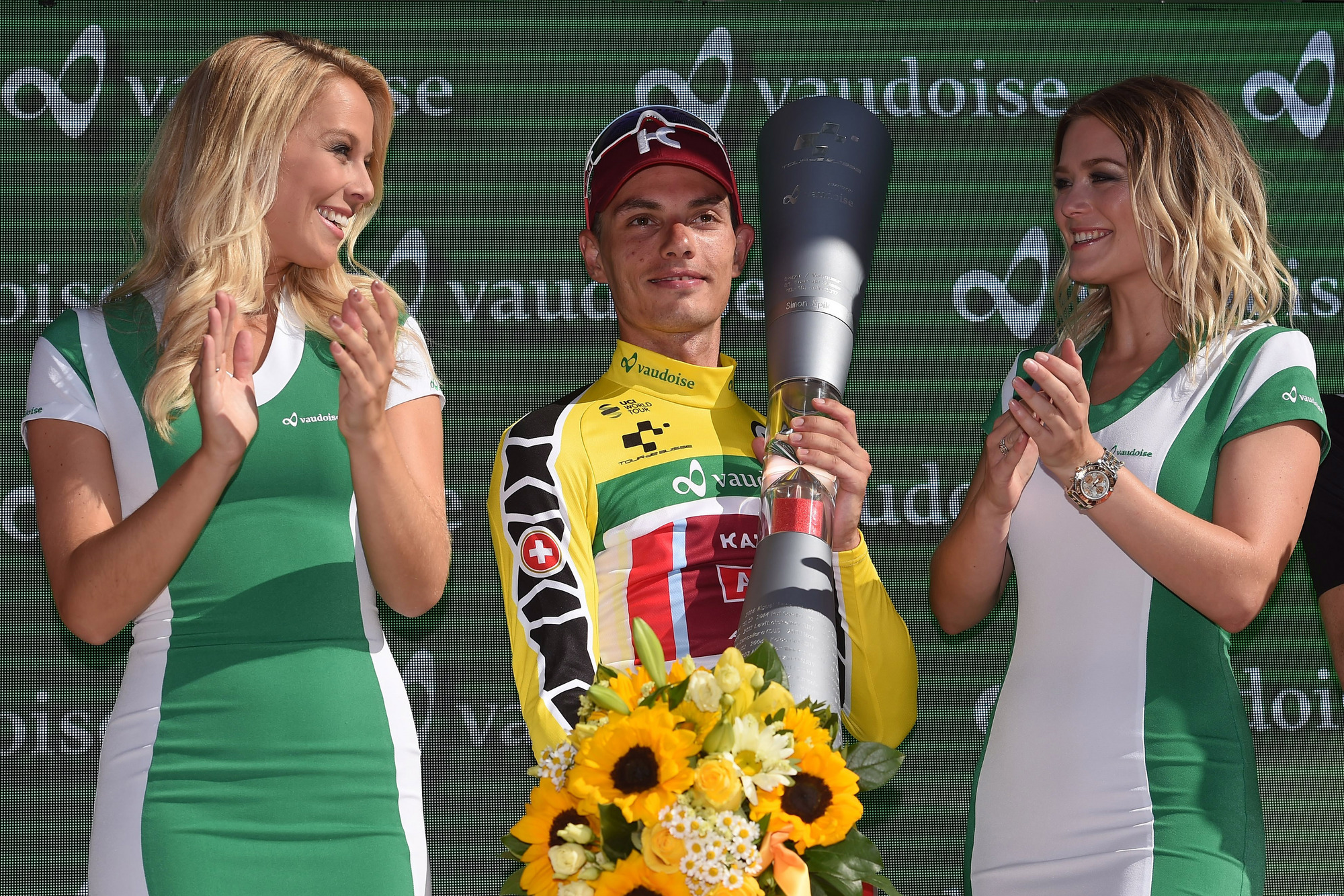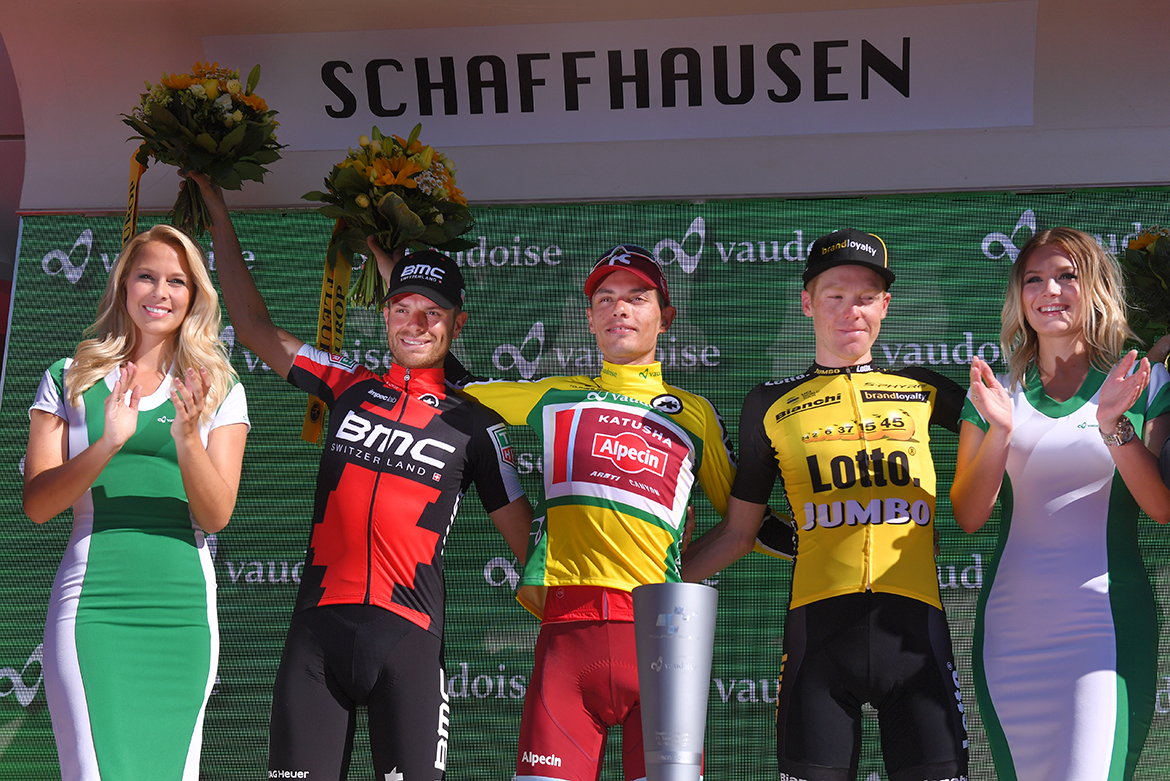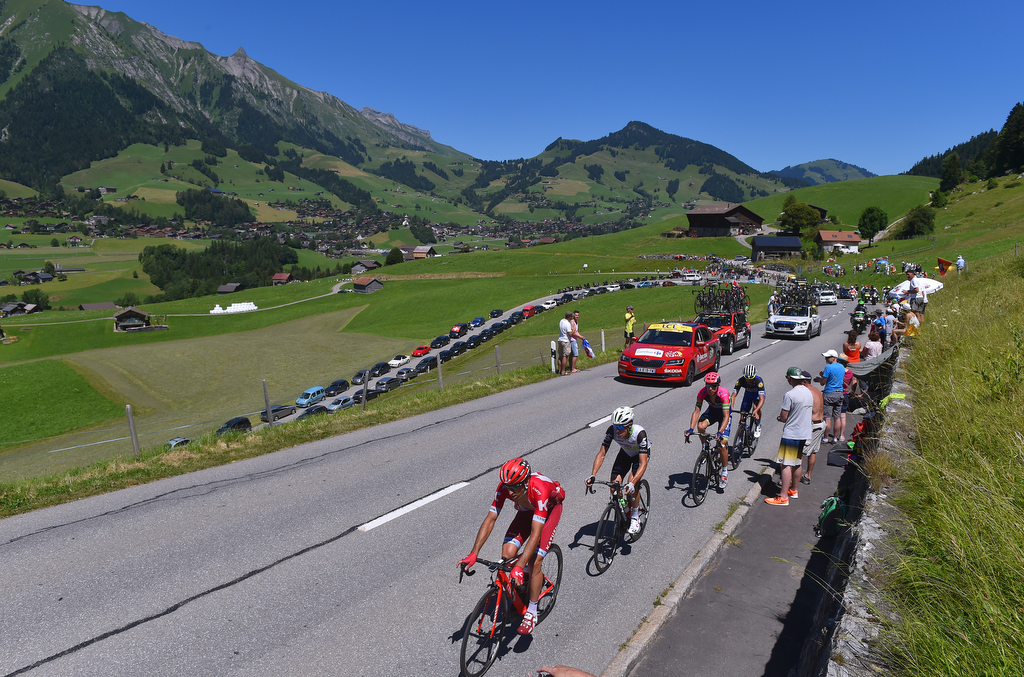Tour de Suisse 2018 to open with team time trial
Riders face more than 16,000 metres of climbing



The route of the 2018 Tour de Suisse has been announced and will feature 1,194 kilometres of racing, 16,797 metres of altitude gain and an opening team time trial. After detailing the start and finish towns last September, the Tour de Suisse organisers have unveiled the complete route of the nine-day race.
The route will take a largely anti-clockwise route around Switzerland, as has been the case in the past seasons, with the opening two stages taking place in Frauenfeld in the northeast of the country, and the final two in Bellinzona in the Ticino canton in the south of the country. There will be little on offer for the pure sprinters with rolling terrain throughout the entire race.
Since 2009, the Tour de Suisse has opened with an individual time trial, which often proved a chance for home hero Fabian Cancellara to earn an early stint in the leader's jersey. This year will be a bit different, with a team time trial around the picturesque German-speaking Frauenfeld. It is the first time since 2000 that the race has featured a team time trial, when Telekom won the opening 25km test against the clock.
This year's offering is a little shorter, but still a stern enough test, at 18 kilometres in length on an undulating route to the north of the city. Stage 2 also keeps to the north side of the city, taking the riders around four loops of a hilly course that includes the climb of Herdern. The stage is just 155 kilometres long but manages 2,136 metres of climbing to make for a potentially explosive opening road stage.
Day three brings the riders out of Frauenfeld and northwest to Oberstammheim. Keeping with the theme set down by the previous day's racing, stage 3 will feature two circuits which do their best to pick out the hillier sections on offer from the local surrounds. The first will be a rolling loop around Oberstammheim before the race travels west to the finish town of Gansingen. Another local lap ensues as the riders cross the finish line two times before they contest the stage win. The lengthy lap brings the riders over two climbs, the Hagenfirst and Burersteig and makes for another day of more than 2,000 metres of climbing.
Stage 4 from Gansingen to Gstaad includes the Saanenmoser climb, which crests with 10km to go, before a descent towards the line.
The following day, the peloton takes a 155km route towards the French border before turning back to the finish line in Leukerbad. The Col du Pillon is the first difficulty, but there is a long, flat run through Martigny and Sion before the HC ascent of Montana Village, which, after a fast descent, is immediately followed by a 22-kilometre ascent to the finish line in Leukerbad.
Get The Leadout Newsletter
The latest race content, interviews, features, reviews and expert buying guides, direct to your inbox!
The queen stage comes on day six with a 186km ride from Fiesch to Gommiswald. The stage, which features a mammoth 3,328 metres of total climbing, is dedicated to Ferdi Kubler, with both of the day's ascents linked to Switzerland's first ever Tour de France champion. The Furkapass, where Kubler took the mountains prize in 1947, is the day's first ascent, and after a long run into the valley, the road rises upwards once again for the Klausen Pass, Kubler's 'local' mountain. Dropped riders will have a chance to return to the fray with another long, sweeping descent before a sharp third category climb to the finish line.
Stage 7 is another tough mountain leg, from Eschenbach/Atzmännig to Arosa. After a rolling start, the route flattens out ahead of the hors category summit finish in Arosa. The 30-kilometre ascent first featured in 1946 and last held a summit finish in 2012 when Michael Albasini took a surprise solo victory after distancing his three breakaway companions.
Albasini would doubtless prefer the terrain on offer for the penultimate day of racing, which is a 123.3km circuit around Bellinzona. It is an undulating course but could be a rare opportunity for the sprinters that brave the race.
Rounding out the week will be a 34-kilometre individual time trial in Bellinzona. After over a week of racing in the mountains, the flat chrono could still prove crucial in deciding who comes out on top of the podium.
Simon Spilak will be the defending champion at the Tour de Suisse after beating Damiano Caruso by 48 seconds a year ago. The 2018 Tour de Suisse will take place from June 9 to 17.
Tour de Suisse 2018:
Stage 1, June 9: Frauenfeld-Frauenfeld, 18km (TTT)
Stage 2, June 10: Frauenfeld-Frauenfeld, 155km
Stage 3, June 11: Oberstammheim-Gansingen, 182km
Stage 4, June 12: Gansingen-Gstaad, 189km
Stage 5, June 13: Gstaad-Leukerbad, 155km
Stage 6, June 14: Fiesch-Gommiswald, 186km
Stage 7, June 15: Eschenbach/Atzmännig-Arosa, 170km
Stage 8, June 16: Bellinzona-Bellinzona, 123km
Stage 9, June 17: Bellinzona-Bellinzona, 34km (ITT)